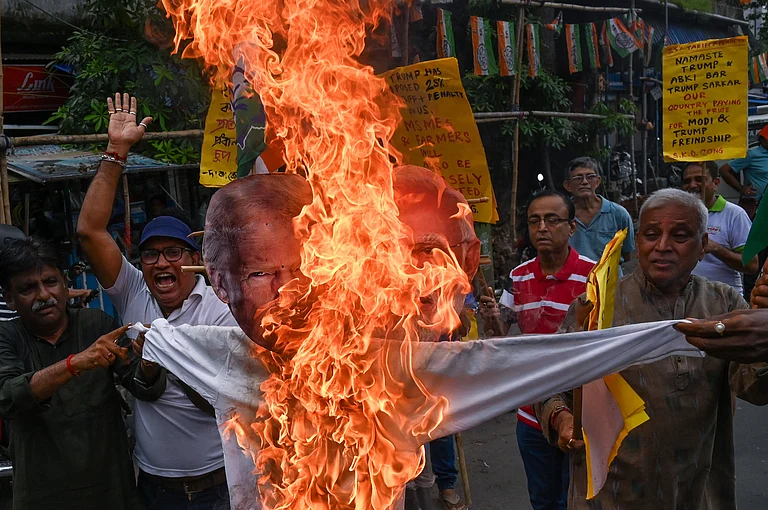The Supreme Court on Thursday disagreed with the Centre's submission that petitions challenging the amended law allowing tenure extension of the Enforcement Directorate director up to five years should not be entertained as they have been filed by political entities facing serious money laundering charges.
The top court said even if the petitioners are facing cases, they have the right to approach the judiciary for redressal of their grievances.
"Even if they are accused, they would still have a locus. If these people do not have a locus, who else will?" a three-judge bench headed by Justice B R Gavai observed.
The remark came after Solicitor General Tushar Mehta clarified that he never used the word 'victim' for the petitioners.
The clarification was made after senior advocate Gopal Sankaranarayanan, appearing for one of the petitioners, submitted that the Centre's objection was that the petitions have been filed by political parties, who are 'victims' of the Enforcement Directorate (ED).
Mehta said he never used the word "victim" and in fact, these are party people who are accused in cases.
The apex court asked Sankaranarayanan to withdraw the "victim" from his statement with attribution to the Solicitor General.
Arguing that piecemeal extensions threaten the independence of the institution, Sankaranarayanan said ED has become a 'caged parrot'.
The top court then asked Sankaranarayanan to confine his submissions to legal issues.
"As to we are concerned, we are hardly bothered as to whether before us is belonging to party A or B. We have to decide the matter on the basis of law. The law would not change if the petitioner is belonging to the BJP or any other party," the bench, also comprising Justice Vikram Nath and Justice Sanjay Karol, said.
Sankaranarayanan said the investigation in a case cannot be independent if a person knows that he would be granted an extension only if he is a "good boy" (obedient to the government).
Advocate Prashant Bhushan, appearing for NGO Common Cause, submitted that institutions like the ED need to be independent in the interest of rule of law.
"These amendments, if upheld, would defeat the entire purpose of these institutions, and rule of law itself," Bhushan argued.
Senior advocate Anoop George Chaudhary, appearing for Congress leader Jaya Thakur, said the Centre has extended the ED director's tenure citing administrative exigencies, but such 'exigencies' cannot continue indefinitely.
Senior advocate K V Viswanathan, who is amicus curiae in the case, said it is important to ensure the office is insulated from government influence and argued that the extension of the ED director is illegal.
The hearing remained inconclusive and will continue on April 20.
The top court had on December 12 last sought the response from the Centre and others to a plea challenging the third extension granted to ED chief Sanjay Kumar Mishra.
It had issued notices to the Union of India, the Central Vigilance Commission and the ED director on a plea filed by Jaya Thakur.
The plea accused the central government of destroying the “basic structure” of democracy by misusing the enforcement agencies against its political opponents.
A batch of petitions, including those filed by Congress leaders Randeep Singh Surjewala and Thakur, and TMC's Mahua Moitra and Saket Gokhale, had come up for hearing before the bench.
According to an official order, the Union government gave a fresh one-year extension to Mishra, the third for the Indian Revenue Service officer, in the position.
The notification issued by the government said the 1984 batch IRS officer will be in office till November 18, 2023.
Mishra, 62, was first appointed the director of the ED for two years on November 19, 2018. Later, by an order dated November 13, 2020, the central government modified the appointment letter retrospectively and his two-year term was changed to three years.
The government promulgated an ordinance last year under which the tenure of the ED and CBI chiefs could be extended by up to three years after the mandated term of two years.
-With PTI Input


























